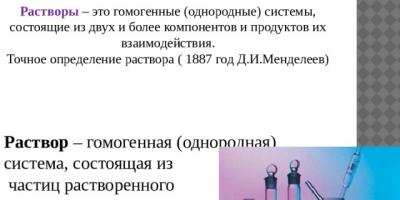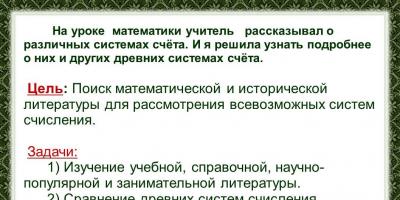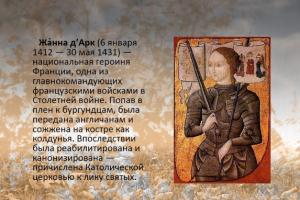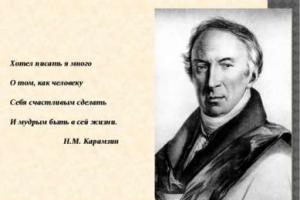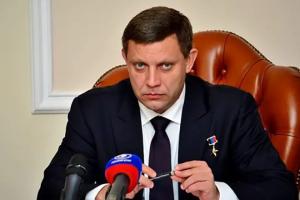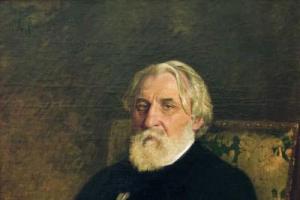One of the main characters of the work is Lieutenant Pirogov, who in the plot of the story represents a friend of the romantic Piskarev.
The writer portrays Pirogov as an arrogant, smug, narrow-minded and vulgar young man who considers himself an educated officer who loves to talk about literature and knows how to entertain the female sex.
Pirogov’s main life goal is to obtain the rank of colonel and gain a secure position. The author assumes that in the future Pirogov will marry a merchant’s daughter, who can play piano parts, has a large dowry and a countless number of rich relatives.
Revealing the image of Pirogov, the author characterizes the hero as a cunning careerist, imitating noble people of secular society, visiting the theater only to indicate his own presence and disdainful of people of lower ranks, arrogantly communicating with them.
In love relationships, Pirogov strives only for pleasure, taking them as an interesting adventure, an affair, without thinking about life’s problems and treating women with crude cynicism.
Unlike Piskarev, who is characterized by a pure and noble attitude towards women, Pirogov’s affection is only advancement up the career ladder, unencumbered by mental anguish and solving complex life problems. Piskarev is doomed to experience dramatic love, and at this time Pirogov, not embarrassed by public opinion, starts an affair with the wife of an artisan named Schiller, bragging about it to all his friends.
Having no positive traits in his character, Pirogov’s nature is distinguished by self-confidence, bordering on outright impudence. The craftsman teaches Pirogov a lesson for seducing his wife by beating him and his drunken friends. However, this event does not in the least affect Pirogov’s principles, only at first, in anger at what happened, the lieutenant threatens Schiller with being sent to Siberian exile, and then, demonstrating a complete lack of honor and human dignity, he goes to the pastry shop for dessert, and in the evening he easily and naturally performs a mazurka at one of the formal balls.
Describing the image of Pirogov, the writer, using his example, portrays a typical representative of the middle class of the then society of St. Petersburg, striving for an elegant life and not distinguished by pride, honor and spirituality.
Option 2
Lieutenant Pirogov is one of the main characters of this work. In his image, the author showed the negative qualities inherent in the middle class of contemporary Russian society and the level of its culture.
The lieutenant considers himself to be a cultured person. He attends receptions and other similar events with an emphasis on intellectual and cultural pastime. The author emphasizes that Pirogov belongs to the middle class of officers and shows that this is a typical figure for metropolitan society.
However, the lieutenant is a rather vulgar and superficial person. He knows how to recite poetry, but at the same time, the author also lists his skills as the ability to tell jokes in a pleasant way, as well as to beautifully blow smoke rings when smoking. All the secular and intellectual gloss of Pirogov is feigned. It only serves to mask the inner emptiness.
Another characteristic feature of a lieutenant is conceit. Having met a woman on Nevsky Prospekt, he, considering himself irresistible, begins to woo her. Moreover, Pirogov is not stopped either by the futility of his efforts, or by the fact that the lady is married. The reason for this is the same internal emptiness. A woman is simply a prize, the pursuit of which (whether it is successful or not) provides an opportunity to occupy time with something and dispel eternal boredom.
When a woman’s husband, a strict German, together with his friends commits an act of retaliation against this character for molesting someone else’s wife (apparently flogging him), the officer, whose honor has been irreparably damaged, is quickly consoled. At the same time, it is significant that a military man who has received the nobility by virtue of his position does not try on his own to punish those who committed an insulting act against him. While suffering punishment, the lieutenant only refers to his connections, with the help of which he promises to cause trouble for the German. It is enough for him to once again immerse himself in the familiar atmosphere of “cultural leisure”, eating a cake and dancing, he forgets everything that happened to him and calms down.
In the image of this superficial and vulgar man, Gogol depicts one of the ways of moral degradation of society.
Essay about Lieutenant Pirogov
In Gogol's story "Nevsky Prospekt" one of the important characters in the foreground is Pirogov. For him, his priority is success and getting a better place. These are just thoughts that live in his head. But he is not ready to beat himself up in order to solve any problems. He is used to living without stress, and according to the rules, he does not feel the need for this. Pirogov prefers to take only the best from life, and does not care about anything. He is only interested in what is fashionable or in fashion, what has become the norm of behavior of the society he has chosen.
Pirogov seems to be attracted to the entire secular society, and he tries to imitate them. People like him love to talk about literature, he likes theater, painting, he even provides another main character, Piskarev, with “patronage.” Pirogov has one big weakness - his rank. This is what he simply adores, he thinks about it, worries about it, and strives for it. He values this most of all, because rank determines a specific place in society. Pirogov was very pleased with his rank, which was achieved not so long ago, and despite the fact that when he lay down on the sofa he said: “it’s all vanity.” Without showing it to anyone, he was proud of himself; when they bothered him, he tried to hint about it.
The author perfectly showed how a person with rank has changed. The fact that he has only negative traits not only hinders, but also helps Pirogov’s self-confidence and arrogance. In a society in which he does not depend on anyone, he speaks without thinking.
Unlike Piskarev, who has a good attitude towards women, Pirogov is a rude impudent man. The reaction to Schiller's severe insult reveals that he has no human qualities.
In this work, Piskarev and Pirogov are exhibited with great characterization of social contradictions. The author emphasizes not easy life situations, but an artistic conclusion through which the realistic strength and direction of the work is determined.
Showing Pirogov, Gogol exposes the economy of rank over man, excessive vulgarity.
The main theme of this story is the life of St. Petersburg and the “little man” in a huge city with his imaginations about society, which cause confusion between what is happening in reality and the idea of the ideal. But even with this, the commercialism and composure of people is revealed. The fate of Pirogov is given in the social movement of the life of the city. Who is only chasing profit, and is not interested in anything else. And the fact that they chased beautiful unknown girls is a contrast in the narrative.
Several interesting essays
- Tvir Kim I want to become (doctor)
There comes a time in every person's life when he has to make a choice about his future profession. This choice is very difficult, even in the world of anonymous professions that are immediately required
- Essay First Day of Spring
Spring is a wonderful time of year, when nature wakes up, everything blooms around, delights with its renewal. There may still be snow on the street and quite cold at night, but you can already feel the approaching warmth in the air
- Collectivization in the novel Virgin Soil Upturned by Sholokhov
The depiction of village life in the transition period and the difficult process of organizing collective farms are the main themes of Mikhail Sholokhov’s novel “Virgin Soil Upturned.” The original title of the work is “With sweat and blood”
- Essay on the book The Divine Comedy by Dante Alighieri
The work “The Divine Comedy” made Dante Alighieri a world famous writer. It seems that any literary masterpiece is capable of touching the most mysterious corners of our souls
- Essay based on Popovich’s painting They didn’t take me fishing (description)
O. Popovich is one of the artists closest to the Russian spirit. In his paintings he depicts those familiar situations that everyone has encountered more than once in life.
It is impossible to imagine the work of N.V. Gogol without the story “Nevsky Prospekt”, which was included in the cycle “Petersburg Tales”. It all started with the writer’s sketches of the St. Petersburg landscape in 1831. The simple plot begins with a description of an avenue in St. Petersburg at different times of the day. Next, the reader meets young people: Lieutenant Pirogov and the artist Piskarev.
The story with Piskarev
The study of the story should be based on a comparison of these images. Piskarev and Pirogov begins from the very first lines. The goal of young people is to follow ladies walking along the avenue. A romantic artist wants to fall in love, he chooses a brunette and follows her. However, having risen and entered the house with her, he suddenly sobers up and realizes with horror that this is a brothel, and the beautiful stranger is a prostitute.
Piskarev cannot accept that a girl of heavenly beauty turns out to be just a fallen woman, is in a dirty establishment and conducts vulgar conversations. The stunned young man rushes home, takes a long time to come to his senses, but then a carriage is sent for him. It turns out that the lady asks him to come. Piskarev goes to the ball. The brunette is beautiful and graceful. They try to talk, but the girl keeps disappearing. Piskarev searches for her for a long time, but cannot find her. And then he wakes up... It was in a dream.
Since then, the young man has not found peace, constantly introducing the girl to his beloved. One day, he nevertheless finds the house of a stranger and, in a conversation with her, tries to explain to her the horror of her situation, paints before her a picture of a happy family life. However, she does not understand him and even mocks him. Offended and dejected, Piskarev leaves, and a week later he will be found in his own house with his throat cut. His comrade Pirogov is not at the funeral. Thus, a comparative description of Piskarev and Pirogov is carried out on the analysis of the events that happened to them.
The story with Pirogov
After all, the same situation happened with Pirogov. When on that ill-fated evening he decided to hit on the blonde, by chance he ended up in the house of a German who, in a drunken state, demanded to cut off his nose. The shoemaker had to do this. Pirogov intervenes and gets a scolding. He leaves, but returns the next day because he wanted to continue acquaintance with the blonde, who turned out to be the wife of a German. His courtship ends with the angry husband and his friend doing such evil to him that the author is silent about it. The enraged lieutenant promises to exile the German to Siberia, but very quickly forgets everything and continues to live his old life.

Life goals
A comparative description of Piskarev and Pirogov begins with the definition of heroes. Pirogov dreams of taking a place in the sun in any way, so he does not torment himself with thoughts about morality or love. Instead of thinking, he lives for his own pleasure. Gogol made this character a symbol of vulgarity. He is interested in fashion and everything related to light. The only desire: to be included in Superficially, he can judge literature and art, but not because he likes it or understands it, but because talking about high things is a sign of good taste. In principle, both Pirogov and Piskarev have a goal in life. The characteristics of Pirogov’s position are as follows.

Chin
Pirogov's cherished desire is rank. This is for him a pass to a bright and free life. And Pirogov is very proud of his own rank. Gogol shows how a position replaces a person. There is nothing decent left in Pirogov. He behaves arrogantly and contemptuously with people on whom he does not depend, and subserviently before those who are higher in rank than him. The flogging of Pirogov, or rather, his reaction to this action, is a test of him. His anger quickly cooled down, which means there was no human dignity in him. Another writer's characteristic of Piskarev. Pirogov's condition, his spiritual impoverishment is shown in the story.
An artist of halftones, Gogol contrasts heroes in lighting. Pirogov is a daytime hero, Piskarev is an evening hero. Daytime, that is, ordinary, gray. There are many people like Pirogov. There are few Piskarevs. This is a person who knows and dignity, love and compassion. His goal is simple and at the same time lofty. He wants to be a good husband, father and artist. In many aspects, a comparative description of Piskarev and Pirogov can be made: in relation to women, to life, and behavior in various situations.
Gogol wrote the story “Nevsky Prospekt” in 1833–1834. The work was included in the author’s “Petersburg Tales” cycle. As in other stories in the series, in Nevsky Prospekt Gogol develops the problem of the “little man,” which has become one of the main ones in Russian realistic literature. The composition of the story consists of three parts: a real description of Nevsky Prospect, the stories of Piskarev and Pirogov, and the author’s depiction of a special metaphysical space, the mythological level of perception of Nevsky Prospect.
Main characters
Piskarev- poor artist, dreamer; was fascinated by a brunette who turned out to be a prostitute.
Pirogov- lieutenant, “had many talents,” loved “everything elegant,” he liked to spend time in society; courted the wife of the German Schiller.
Other characters
Schiller- “a perfect German”, “a tinsmith on Meshchanskaya Street”, the husband of a blonde.
Hoffman- “shoemaker from Ofitserskaya Street”, friend of Schiller.
Blonde- Schiller's wife.
Brunette- a prostitute.
“There is nothing better than Nevsky Prospekt.” “Nevsky Prospekt is the universal communication of St. Petersburg.” Early in the morning the avenue is empty. Until 12 o’clock “it gradually fills with people who have their own occupations, their own worries, their own annoyances.” After 12, “tutors of all nations” appear here with their students.
Closer to 2 o'clock - parents of children, and then people who have “finished quite important homework.” Here you can see everything and everyone. At 3 o’clock the avenue “is covered entirely with officials in green uniforms.” It's been empty since 4 o'clock. “But as soon as dusk falls on the houses and streets,<…>then Nevsky Prospekt comes to life again and begins to move.”
Lieutenant Pirogov and a friend are walking along Nevsky Prospekt. Pirogov liked a certain blonde, while his friend liked a brunette, so the young people disperse, rushing after the ladies.
Pirogov’s friend, the artist Piskarev, following the brunette, approached the four-story building and climbed the stairs. They entered the room. Looking around, Piskarev realized that he was in a brothel. The beautiful stranger who captivated the artist was 17 years old. However, when he heard the girl talking, “so stupid, so vulgar,” he ran away.
After midnight, when Piskarev was about to go to bed, a footman in a rich livery suddenly knocked on his door. The guest said that the lady, who had visited the artist a few hours ago, had sent a carriage for him. The footman brought Piskarev to the ball. Among the luxuriously dressed people, the artist notices a beautiful stranger. She tried to tell Piskarev that in fact she did not belong “to that despicable class of creations,” and wanted to reveal some secret, but they were interrupted. Suddenly the artist woke up in his room and realized that it was just a dream.
From that moment on, Piskarev became obsessed with the beautiful stranger, trying to see her in his dreams again and again. The young man began taking opium. He dreamed of the stranger almost every day; in his dreams he saw her as his wife. Finally, the artist decided to actually marry the girl.
Piskarev “carefully dressed up” and went to the brothel. The young man was met by “his ideal, his mysterious image.” Having gathered his courage, Piskarev “began to imagine her terrible situation.” The artist said that although he was poor, he was ready to work: he would paint pictures, she would embroider or do other handicrafts. The girl suddenly interrupted him, saying that she was not a laundress or a seamstress to do such work. Piskarev “rushed out, having lost his feelings and thoughts.” The young man locked himself in his room and did not let anyone in. When they broke down the door, they found him dead - he committed suicide by cutting his throat. “So poor Piskarev died, a victim of insane passion.”
Pirogov, pursuing the blonde, followed her out onto Meshchanskaya Street - “a street of tobacco and small shops, German artisans and Chukhon nymphs,” climbed the stairs and entered a large room. Mechanic's tools and iron filings indicated that this was a craftsman's apartment. The stranger walked through the side door, Pirogov behind her. There were drunken men sitting in the room: tinsmith master Schiller and his friend the shoemaker Hoffmann. Hoffmann was going to cut off Schiller’s nose, since he did not need a nose, which “was worth three pounds of tobacco a month.” The sudden appearance of Pirogov interrupted this process. The indignant Schiller drove the lieutenant away.
The next day, Pirogov went into Schiller’s workshop. He was met by the same blonde. Pirogov said that he wants to order spurs. The blonde called her husband - it turned out to be Schiller himself. The German, not wanting to get involved with the lieutenant, named a high price and long terms, but Pirogov still insisted that he wanted to order from Schiller.
Pirogov began to frequently visit the German, ostensibly asking when the spurs would be ready, but in fact, to court Schiller’s wife. When the spurs were ready, the lieutenant ordered a frame for the dagger. Pirogov's courtship of the blonde outraged the phlegmatic Schiller, he tried to figure out how to get rid of the lieutenant. Pirogov, among the officers, had already boasted of an affair with a pretty German woman.
Once Pirogov came to a German woman when Schiller was not at home. But as soon as the lieutenant began to kiss the woman’s foot, the German returned, and with him his friends - Hoffmann and Kunz. They were all drunk and immediately attacked Pirogov. After what happened, the lieutenant wanted to immediately go and complain about the Germans to the general, but he went into a pastry shop and “came out in a less angry state.” By 9 o'clock the lieutenant had completely calmed down and went to the evening, where he distinguished himself in the mazurka.
“Oh, don’t believe this Nevsky Prospect!” “He lies at all times, this Nevsky Prospekt, but most of all when the night falls on him in a concentrated mass<…>and when the demon himself lights the lamps only to show everything not in its real form.”
Conclusion
In the story “Nevsky Prospect”, Gogol uses the literary device of duality, which is primarily used when depicting Nevsky Prospect: it simultaneously exists in two worlds: the real and the surreal, romantic. The depiction of the two main characters, Piskarev and Pirogov, as well as the stories that happen to them, is also ambivalent. Pirogov approaches life simply, superficially; he does not tend to dream and idealize. Piskarev lives in the world of his dreams, dreamed events become for him as if they were part of what really happened.
Test on the story
Check your memorization of the summary content with the test:
Retelling rating
Average rating: 4.5. Total ratings received: 2087.
One of the main characters of the story — Piskarev. He lives in difficult conditions, and is immeasurably far from aristocratic society. A man of art, endowed with a fiery imagination, with a subtle, vulnerable soul, thirsting for beauty. He is placed at the center of the story precisely because he perceives the contradictions of St. Petersburg especially acutely. The collapse of his dream leads to a tragic outcome.
Next to the romantic hero in the story, there is his antipode, the embodiment of vulgarity, earthliness, lack of spirituality - the lieutenant Pirogov. Neither his last name, nor his inner world, nor his behavior have anything to do with the characteristic features of the characters in secular stories. Gogol showed artistic courage by choosing an officer as the bearer of vulgarity and even emphasizing that Pirogov was by no means unique. It’s not for nothing that Piskarev sees Pirogov’s double out of the corner of his eye in the brothel: “Through the unlocked door of another room, a boot with a spur shone and the edgings of his uniform turned red; a loud male voice and female laughter were heard without any coercion.”
“Nevsky Prospekt” paints a fairly broad picture of St. Petersburg and provides a multifaceted artistic and demographic analysis of the capital. But multilateral does not mean complete. If the writer had limited himself to pictures of a moving avenue, images of the “bottom”, the life of unknown artists, poor artisans and fattening officers, the picture of the capital would still have been narrowed. There is clearly a lack of depiction of life at the top. And the writer, obviously, decided to fill this gap by introducing into the narrative a picture of the hero’s dream.
In Piskarev's dream everything is plausible, despite the appearance of a plebeian artist at a social ball bordering on the miraculous and the transformation of a woman of dubious behavior into the queen of the ball. If we remove the ball scene from the story, omitting the final phrase: “He raised his eyes: in front of him stood a candlestick with fire...” this scene can be taken either as an independent story (short story), or, in extreme cases, as a fragment of a realistic work.
Gogol I didn’t care much about ensuring that all the details accurately conveyed the psychological authenticity of the dream. Here, for example, is how he portrayed young careerists, participants in the ball: “They were filled with such nobility, they spoke and were silent with such dignity, they could not say anything superfluous, they joked so majestically, they smiled so respectfully, they wore sideburns so excellently, they knew how to show great hands. Description multiplicity of actions or states of characters is more appropriate in the author’s characteristics: in a dream, it is impossible to see that the heroes did not want to say anything unnecessary or were joking majestically.
It was important for the writer to briefly characterize young representatives of secular society, and not to reproduce details realistically Piskarev's sleep. Therefore, he unwittingly exposed the conventionality of the description.
The content of Piskarev’s dream is a ball. The writer had the opportunity to draw a romantic beauty in a different situation. But he fluently talks about Piskarev’s many dreams, even snatches two from them, in which the artist’s beloved woman becomes the mistress of a village house, and then his wife, but only paints in detail the scene of a ball in high society. Balls were an important structural element of noble life. Writers were attracted by the opportunity to show a lot of people in a free environment, in their friendly and loving communication, in complex relationships with each other.

The occupation of the heroes of the story Piskarev is an artist, which emphasizes the presence of creativity in a person who is unable to resist reality. Pirogov is an officer, lieutenant, his rank personifies power. He belongs to that class of people who suppress personality.

Portraits of the heroes of the story “Nevsky Prospekt” Piskarev is “for the most part kind, meek..., shy, careless, loving his quiet art”; “modestly talking about a favorite subject”; “They work at their work with true pleasure. They often harbor true talent within themselves”; “shy, timid, but in his soul he carried sparks of feeling” Pirogov “... are considered scientists and educated; don’t miss a single public lecture”; “they love good poetry in a play, they also really like to call out the actors loudly”; “they have a special gift of making you laugh”; “he recited poetry excellently”; “had a special art of blowing smoke in rings”; “knew how to tell a joke”; “he was pleased with his rank”; “I was very flattered by this new dignity”

Characteristics of the characters (pursuit scene) Piskarev “he moved away to a long distance, carelessly looked around”; “not hearing, not seeing, not listening”; “trying to moderate the speed of his step”; “sometimes he was overcome by doubt”; “his knees were trembling” Pirogov “didn’t stop pursuing,...busy with questions”; “boldly made his way”; “following the Russian rule, I decided to go forward”



The ending of Pirogov’s persecution “... ended somehow strangely: on the way he went into a candy store, ate..., read and left...”; “a rather pleasant evening made him walk around; ...he calmed down”; “I went for the evening..., I spent the evening with pleasure, I distinguished myself in the mazurka...”



Dreams of the artist Piskarev. Artist D. Kardovsky “God, what a dream! And why did you need to wake up?... Oh, how disgusting reality is! Why is she against dreams? “But now...what a terrible life! God, what a life ours is! the eternal conflict between dreams and reality!



Why doesn’t N.V. Gogol “give” Pirogov’s dreams? Pirogov is a person deprived of a high spiritual life. Most likely, he does not see dreams, and if he does see them, then the dreams reflect his real life. Pirogov’s real life, his actions sufficiently reveal the hero’s character, needs and interests.



Internet resources used titles.php?lt=195&author=26&dtls_books =1&title=991&submenu=5


